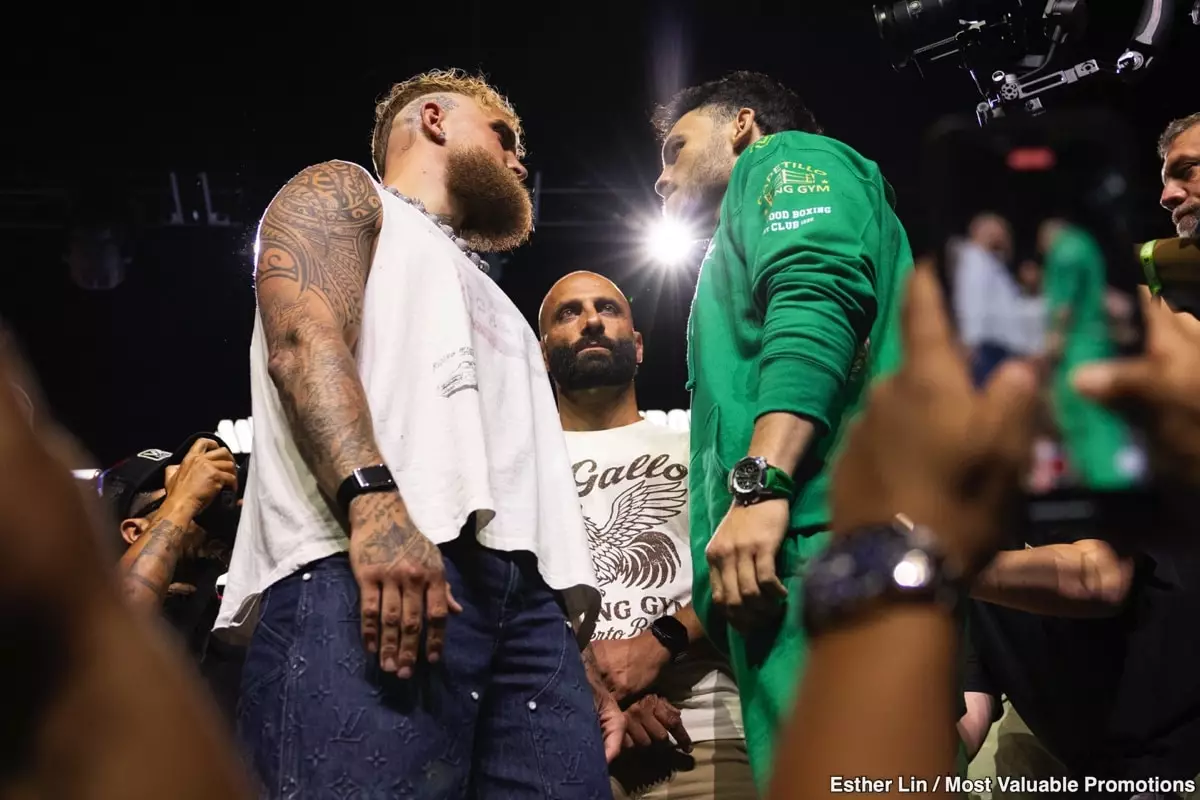Jake Paul’s entry into professional boxing at the dawn of 2020 was met with skepticism and, frankly, outright ridicule from many traditional boxing fans and purists. After all, here was a social media personality turned boxer, stepping into a sport defined by decades of tradition and hard-earned skill. Yet, over the past five years, Paul’s trajectory has been anything but conventional, shaking up the boxing landscape in ways few expected. Whether you admire or disdain him, Paul’s influence is undeniable—he has played the role of both disruptor and promoter, bringing fresh eyes and a new demographic to boxing.
Innovating Promotion Beyond the Norm
Jake Paul’s ability to market his fights represents one of his most commendable accomplishments. Unlike many established fighters whose promotional efforts rely heavily on legacy or reputation alone, Paul has leveraged modern platforms and entertainment strategies—namely digital streaming services like Netflix—to widen the sport’s audience. He’s achieved the rare feat of securing multiple boxing specials on Netflix, an unprecedented milestone for a relatively new professional boxer. While the quality of some fights, especially the highly anticipated bout with Mike Tyson, was underwhelming in the eyes of die-hard combat fans, the visibility and cultural penetration Paul has fostered should not be underestimated.
Fighting Old Warriors: A Double-Edged Sword
Opponents such as Anderson Silva, Nate Diaz, and Tyron Woodley were lightning rods for attention and controversy alike. These were no ordinary matchups, as Paul pitted himself against ex-MMA champions who, while marquee names, were arguably past their competitive peaks in mixed martial arts, translating imperfectly to boxing ring success. This strategy drew criticism that Paul cherry-picked easy targets to amass his record. However, it also brought combat sports fans from various corners vulnerably invested, eager to see if their MMA heroes could dominate this upstart YouTube star or be exposed. Paul’s decisive victories, especially his knockout of former UFC fighter Ben Askren and the emphatic stoppage over Woodley in their trilogy, confounded many critics and generated mainstream interest that boxing had struggled to attract consistently.
The Reality Check of Facing Real Boxers
Despite his marketing wizardry and success against MMA fighters, Paul’s transition into “real” boxing competition has been less convincing. His split decision loss to Tommy Fury—brother of heavyweight champion Tyson Fury—revealed the limitations of his boxing aptitude when up against more traditional, technically skilled pugilists. This moment served as a crucial litmus test, exposing Paul’s need to genuinely refine his craft if he intends to sustain longevity and respect within the sport.
Julio Cesar Chavez Jr.: Still a Threat or a Distant Memory?
Paul’s upcoming clash with Julio Cesar Chavez Jr. adds yet another compelling layer to his career narrative. Chavez Jr., a once-promising star with a renowned boxing pedigree, has devolved into a shadow of his former self. His loss to Anderson Silva years ago and his recent victory over MMA fighter Uriah Hall—while a win—did little to convince skeptics that he can still compete at the highest levels. There’s a broader question about Chavez’s commitment inside the ring, given his notorious struggles with discipline and lifestyle choices. A candid assessment would be that while his name commands respect, the fighter underneath may no longer pose a true challenge. Still, betting markets suggest value in backing Chavez as an underdog, reflecting lingering uncertainty about the fight’s outcome.
The Broader Implications for Boxing
Jake Paul’s impact extends beyond statistics and individual fights. He has challenged the status quo of boxing promotion, tapping into a digital-native generation and mixing entertainment with sport in novel ways. Whether purists like it or not, his success has forced traditional boxing promoters and even seasoned professionals to reconsider how fights are packaged and sold. Additionally, his investment in women’s boxing and willingness to promote these matches signals a progressive shift that many established camps have been slow to prioritize. Paul’s trajectory presents a fascinating case study in how personality-driven boxing could evolve, blending showmanship with legitimate competition.
Final Thoughts: A Flawed but Fascinating Figure
Jake Paul is not the perfect boxing athlete or promoter; far from it. His early reliance on faded MMA stars drew rightful criticism, and his skill gaps remain evident against seasoned boxers. Yet, his enthusiasm, marketing acumen, and boldness in attracting mainstream attention to boxing cannot be dismissed lightly. His career raises essential questions about what boxing is and could become—does it remain a sport solely for the technically elite, or can it embrace larger-than-life personalities who bring new fans to the fold? Paul’s journey is a provocative blend of ambition, controversy, and undeniable influence, making him one of boxing’s most polarizing and impactful figures of the past half-decade.

